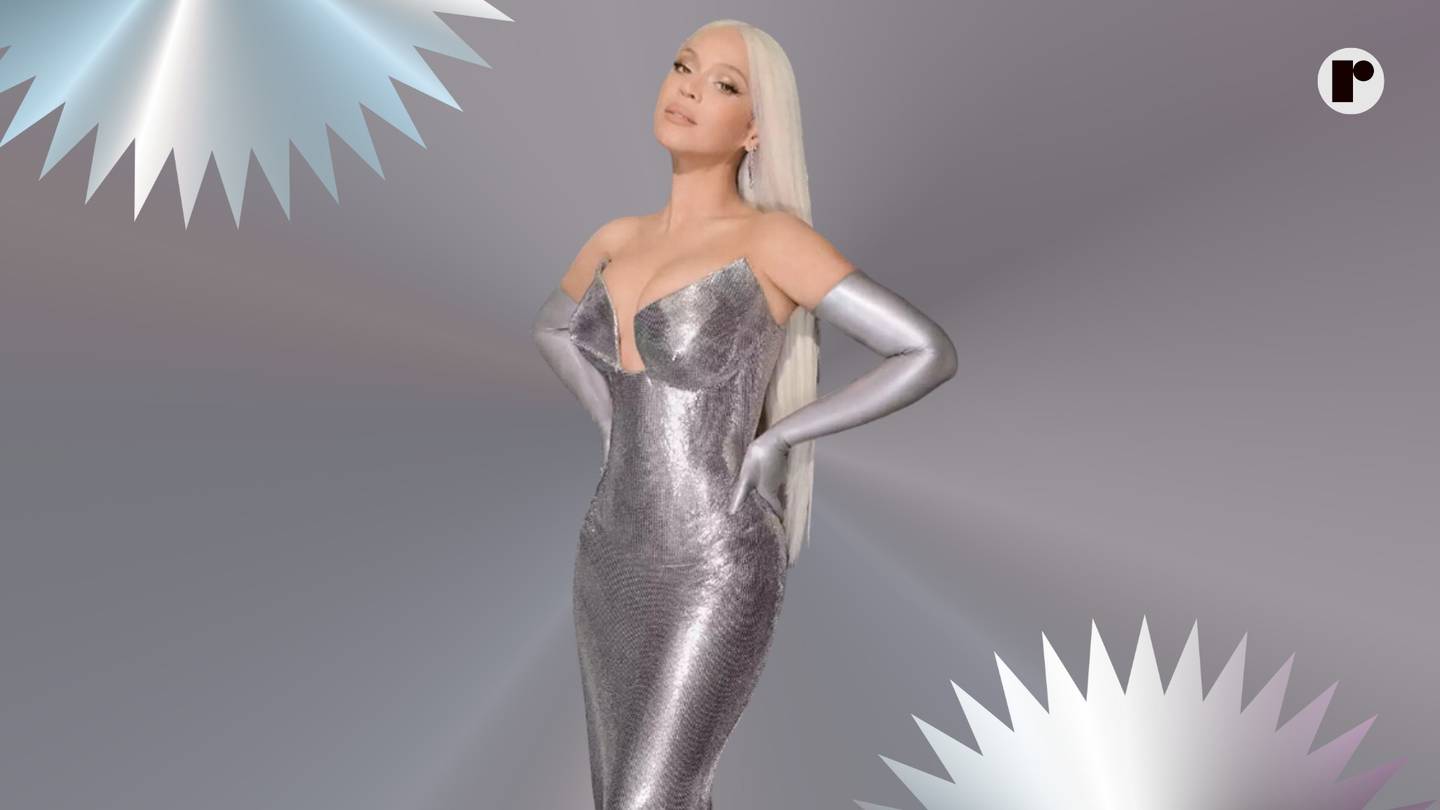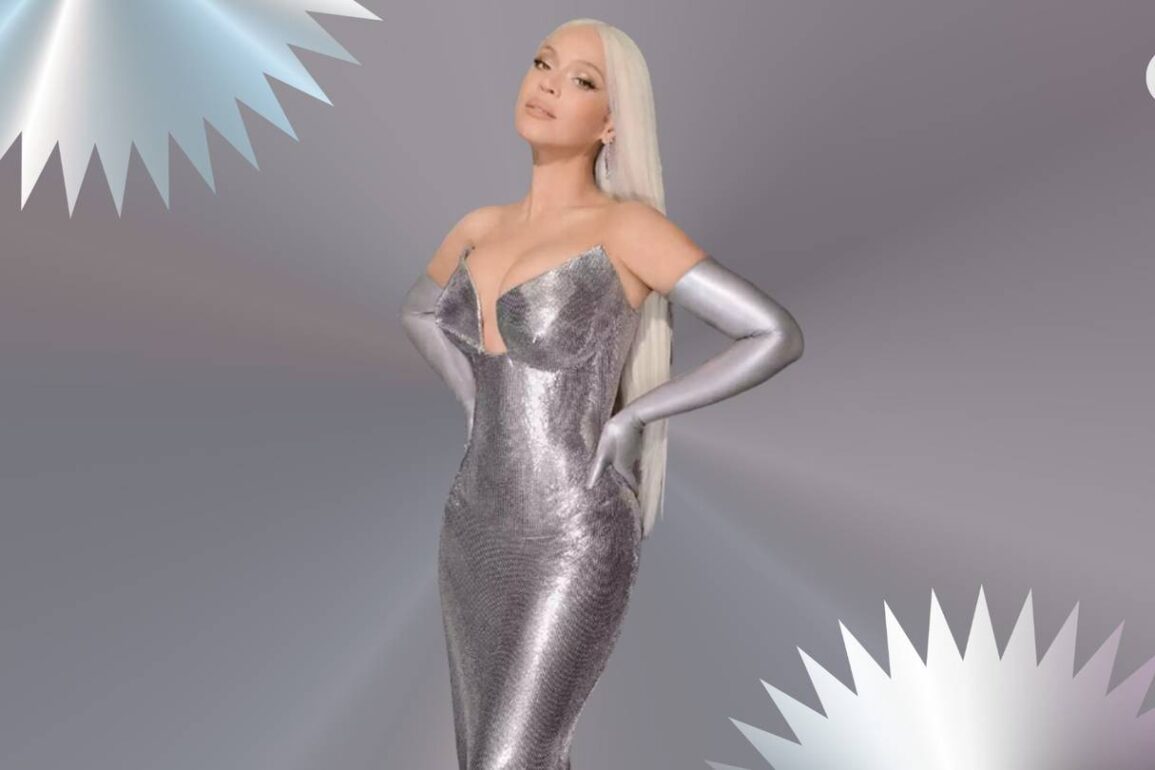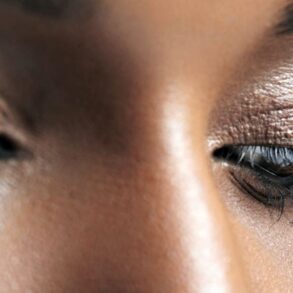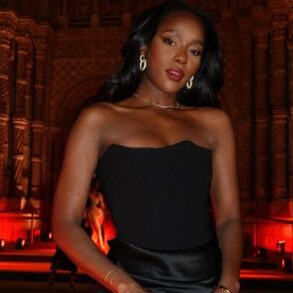
Music icon Beyoncé has once again ignited conversation about race and identity with her latest look.
On Nov. 25, global superstar Beyoncé Knowles hosted the world premiere of her film “Renaissance: A Film By Beyoncé,” a movie chronicling the journey of creating and performing the “Renaissance” Tour, in Los Angeles. On the chrome carpet, she wore a long silver Versace dress complete with platinum hair.
While many social media users loved the metallic look now synonymous with the tour, others questioned if the singer was trying to look lighter than what she truly is.
“Can we just keep it funky and acknowledge that Beyoncé looks light enough to be white in those photos? And we know sis understands lighting, so publishing photos looking like Khaleesi was…a choice,” X user Donovan Ramsey said in a Nov. 28 post.
People quickly came to Knowles’ defense, including her own mother, Tina Knowles.
“She does a film where the whole theme is silver with silver hair, a silver carpet, and suggested silver attire and you bozos decide that she’s trying to be a white woman and is bleaching her skin? How sad is it that some of her own people continue the stupid narrative with hate and jealousy,” Knowles said in a Nov. 28 post on Instagram.
As her mother said, the commentary surrounding Beyoncé’s premiere look is sparking conversations around “racism, sexism, [and] double standards.” Along with this, the differences between “white-fishing” versus “Black-fishing” and representation are being discussed online as well, according to a Nov. 29 Cosmopolitan UK article.
This isn’t the first time in her decades-long career this issue of colorism has come up.
In 2008, the company L’Oréal was accused of altering Beyoncé’s complexion to look lighter for their hair care advertisement with her. In 2021, Tiffany and Co. in their own advertisement with Beyoncé were accused of lightening her skin as well, worrying fans.
These conversations are part of “the longstanding pattern in the entertainment world of assessing women more for their appearances and what they are wearing than discussing the actual projects on which they have worked,” Cornell University professor Riché Richardson said.
The public’s reproach
From artist Katherine Harris’ perspective, she saw the critiques of Beyoncé “attempting to look more white” as delusional.
“Beyoncé constantly uplifts women and especially Black women. Everyone has a right to their opinions, but it’s crazy to watch people try to find something wrong or something to criticize about almost everything in life. Most melanated individuals experience various appearances based on environment, lighting, and appearance enhancers such as makeup,” Harris said.
After a white journalist from TMZ reached out to Beyoncé’s hair stylist Neal Farinah for a statement on Beyonce’s skin tone, Knowles had enough.
Posted along with a fan edit of Beyoncé to her song “Brown Skin Girl,” Tina Knowles wrote that the situation “made my blood boil, that this white woman felt so entitled to discuss her Blackness. What’s really most disappointing is that some Black people, yes you bozos that’s on social media. Lying and faking and acting like you’re so ignorant that you don’t understand that Black women have worn platinum hair since the Etta James days,” asking if the other Black celebrities who have worn platinum hair are trying to be white as well.
Despite public denial, X user Shaniqua in a Dec. 2 post said that “one of the biggest lies to emerge in recent years is the ‘white women want to have Black features’ claim. In reality it’s the exact opposite. The biggest Black superstars want to be white. Beyonce is the perfect example.”
White-fishing and colorism
“White-fishing” is a term used to describe when people of color adopt physical or cultural attributes typically associated with whiteness. Critics of Beyoncé’s look argue that it perpetuates harmful stereotypes about Black beauty and contributes to the erasure of Black identity.
Critics jumped to the conclusion that Beyoncé is trying to promote Euro-centric features, author Elena Chabo said in her Nov. 29 Cosmopolitan UK article.
According to author Jacqueline Arias in a 2019 article for Preen.PH, white-fishing and Black-fishing are both forms of erasure that promote Euro-centric features while ignoring minority communities.
There is evidence of Beyoncé proudly claiming her Black culture throughout her career. For example, her 2016 song “Formation” and its following music video was seen as a “deeply personal look at the Black and queer bodies who have most often borne the brunt of our politics,” writer Syreeta McFadden said in a 2016 article for The Guardian.
In her 2020 song “Black Parade,” released on Juneteenth weekend, Knowles celebrates her Blackness. She sings about getting peace and reparations for her people, letting her natural hair free and showing Black love to all.
“During the past decade, as an artist, Beyoncé stood at the forefront of Black activism and showcased the platforms of such movements as Black Lives Matter, #SayHerName, and #TakeAKnee in her artistry, particularly in work such as ‘Formation’ and on the larger ‘Lemonade’ album. It’s not fair to attempt to troll her or to brand her as any kind of ‘sellout,’ Richardson said.
Despite Beyoncé not having issues when it comes to skin whitening, that doesn’t mean that this and colorism aren’t prevalent issues in the music industry. Artists such as rapper Lil Kim have been accused of changing their Black features to meet Eurocentric standards. In a 2000 interview with Newsweek, Lil Kim said that “I have low self-esteem and I always have. Guys always cheated on me with women who were European-looking. You know, the long-hair type. Really beautiful women that left me thinking, ‘How can I compete with that?’ Being a regular Black girl wasn’t good enough.”
A 2021 survey done by Black Lives in Music found that out of the Black women surveyed, 48% said they were far more likely to be forced into altering both their behavior and their appearance (44%). Another 2021 study focusing on the differences in disadvantages between light skin and dark skin Black women found that “darker skin was associated with disadvantage across socioeconomic, health, and psychosocial domains.”
Research and data suggests that colorism is still an issue today. A study by Villanova in 2011 found that “light-skinned Black women served 11% less time in prison than dark-skinned Black women.”
In pop culture, there are examples of colorism, a form of discrimination or prejudice that favors people with lighter skin over those with darker skin, still being prevalent.
Experiencing colorism can lead to those to face mental health challenges such as anxiety and depression. The phenomenon also has an impact on how successful a person can be in the entertainment industry.
For example, singer Chris Brown allegedly said in 2021 that he allows “no darkies” in his club section, causing controversy. Shows such as “Grown-ish” in 2018 have been called out for a lack of dark-skinned characters, despite covering topics such as colorism on their show. Even when it comes to reality TV, the hit show “Real Housewives of Potomac” had a spotlight put on them earlier this year for how the dark-skinned cast members are unable to express themselves like their light-skinned peers.
Looking back at colorism’s history, “for a long time, advertisements in the Black press for skin lighteners and hair straighteners proliferated and were very real. Similarly, depictions in the Black media as well as in the cultural mainstream, particularly in the years prior to the Black Power movement, tended to embrace more Eurocentric beauty standards…,” Richardson said.
What’s next with this complex issue?
On the flip side, musical artists have also been accused of “Black-fishing” in order to gain personal profit and approval. “Black-fishing” “refers to a non-Black person’s manipulation of Black aesthetics for the purpose of attaining social capital or monetary benefit,” according to a 2022 article from Ms Magazine. Some recent artists accused of “Black-fishing” include singer Jesy Nelson of girl group Little Mix, singer Rita Ora and rapper Iggy Azalea.
Journalist Taylor Crumpton sees Black-fishing as a way for non-Black people to be able to profit off of the attention and movements around Black identity and culture.
“It would be remiss not to connect the wave of ‘Black-fishing’ social media influencers to digital campaigns around #BlackLivesMatter, #SayHerName, and #BlackGirlsRock. If whiteness is power and Blackness is currency, then white people will always feel an incentive to adorn Black elements and components in order to get rich,” Crumpton said.
As Chabo said in her Nov. 29 Cosmopolitan UK article, accusing someone of “white-fishing” is a way to try to make “Black-fishing” seem invalid.
In recent years, there has been a growing awareness of colorism, and there are a number of organizations and initiatives that are working to combat it. For instance, organizations such as The Representation Project are working to raise awareness around these issues and increase the representation of girls and women of color in the media. They release films such as “Miss Representation” and “The Mask You Live In” to be able to tell the stories of those that are often ignored in society.
“No matter who you are or where you live, intersectional gender stereotypes are hurting you and those you love. Through film, education, and activism, The Representation Project awakens consciousness, spotlights the cost of these stereotypes, and invites everyone to build a more equitable future,” the organization stated.
It remains to be seen if the issues of Black-fishing, representation and colorism will be properly addressed in our society.
“Conditions must improve and barriers must be removed for Black artists to be themselves, which means interventions and change must be enacted at all levels for artists in order to be free,” said Crumpton. “As Beyoncé says on ‘Church Girl,’ ‘I was born free.’ Work has to be done for all of us to be able to enjoy our freedom.”
This post was originally published on this site be sure to check out more of their content.









